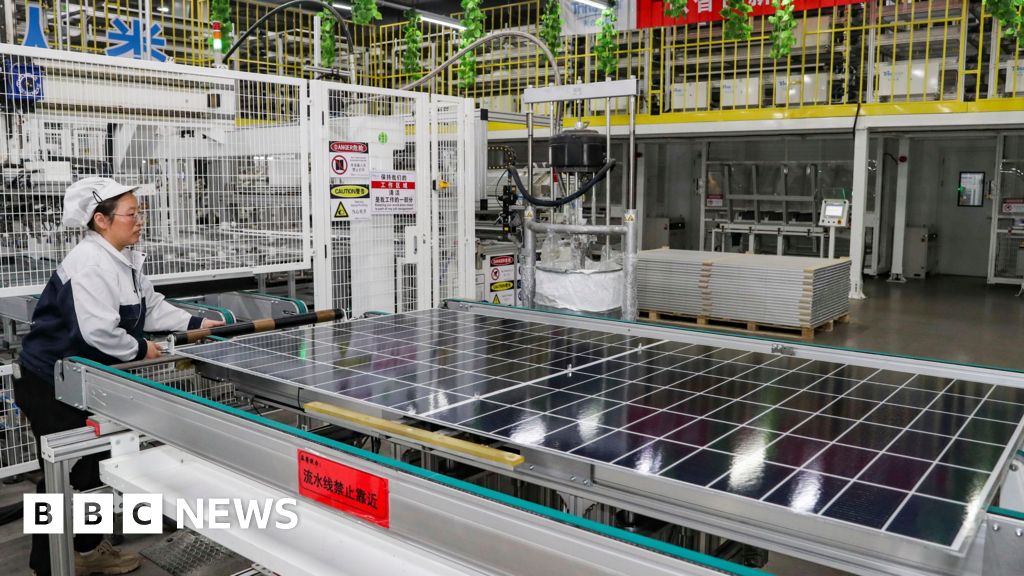The US Commerce Department has announced plans to impose tariffs of up to 3,521% on imports of solar panels from four South East Asian countries.
It comes after an investigation that began a year ago when several major solar equipment producers asked then-President Joe Biden administration to protect their US operations.
The proposed levies – targeting companies in Cambodia, Thailand, Malaysia and Vietnam – are in response to allegations of subsidies from China and the dumping of unfairly cheap products in the US market.
A separate US government agency, the International Trade Commission, is due to reach a final decision on the new tariffs in June.
The countervailing and anti-dumping duties, as these tariffs are known, vary between companies and the countries their products are made in.
Some solar equipment exporters in Cambodia face the highest duties of 3,521% because of what was seen as a lack of cooperation with the Commerce Department investigation.
Products made in Malaysia by Chinese manufacturer Jinko Solar faced some of the lowest duties of just over 41%.
Another China-based firm, Trina Solar, faces tariffs of 375% for the products it makes in Thailand.
Neither company immediately responded to requests for comment from BBC News.
The levies would be imposed on top of other trade tariffs already rolled out by the Trump administration.
The US Commerce Department’s findings were welcomed by the American Alliance for Solar Manufacturing Trade Committee – a group of manufacturers that called on the US government to launch the investigation.
“This is a decisive victory for American manufacturing and confirms what we’ve long known: that Chinese-headquartered solar companies have been cheating the system,” said Tim Brightbill, lead counsel to the Alliance.
In 2023, America imported almost $12bn (£8.9bn) in solar equipment from the four countries, according to US Census Bureau figures.
While the planned tariffs are likely help US solar panel manufacturers, they could also mean extra costs for businesses and consumers who have benefited from the availability of cheaper solar products.









More Stories
18 years, zero returns: China’s stock market stuck in time even as Nifty surges 500%
‘To my country’: Why Chinese investors are the buying dip amid trade war with the US
East Yorkshire residents offered £425 to help with cost of living